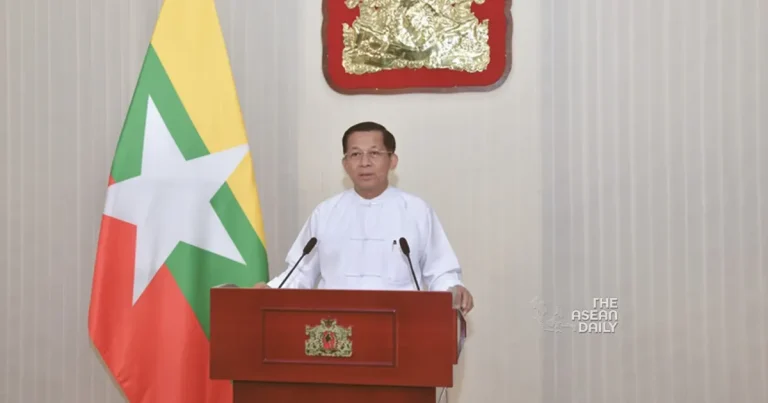9-8-2024 (YANGON) Recent developments suggest that China may be reassessing its position on Myanmar’s military junta, viewing the generals’ reluctance to engage in dialogue with resistance forces as a growing concern. This shift comes amidst mounting regional pressure on Myanmar’s de facto leader, General Min Aung Hlaing, to hold elections and stabilise the country.
The junta’s recent extension of the state of emergency for another six months, ostensibly to prepare voter lists, has raised eyebrows among international observers. Jason Tower, country director for the Burma programme at the United States Institute of Peace, notes that this extension was “widely expected” but also reflects the increasing pressure on Min Aung Hlaing, particularly from China, to hold elections.
China’s recent diplomatic overtures, including a meeting between Chinese Foreign Minister Wang Yi and former Myanmar President Thein Sein, have been interpreted as a signal of Beijing’s desire for a change in Myanmar’s political landscape. Tower suggests that “China sees elections as a possible off-ramp for the military”, although he questions the junta’s capacity to organise even a sham election given the current battlefield situation.
The ongoing conflict between the military and the Three Brotherhood Alliance, a coalition of ethnic armed groups, has further complicated matters. The alliance’s recent offensive has seen them overrun numerous military outposts and seize control of several towns near the Chinese border. Beijing’s push for renewed talks between the warring parties has been met with resistance from Min Aung Hlaing, potentially souring China’s view of the junta.
Hunter Marston, a Southeast Asia researcher at the Australian National University, predicts that any election held next year is likely to be incomplete and unrepresentative. He suggests that while such an election might not gain international recognition, it could be “sufficient” for Min Aung Hlaing to secure a government recognised by China and India.
Mikael Gravers, associate professor emeritus at Denmark’s Aarhus University, speculates that China may be hoping for an interim government that includes the former National Unity Government and resistance forces, with Thein Sein potentially serving as a unifying figure.
As the situation evolves, China appears to be recalibrating its approach. Htwe Htwe Thein, an associate professor at Australia’s Curtin University, suggests that as the junta loses ground, China may be “rethinking seriously and urgently which side it should be on, or at least which side China should be stepping up negotiations with”.




